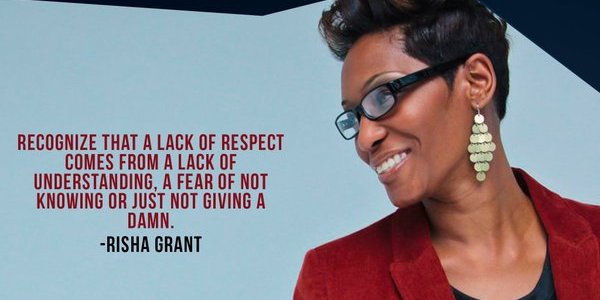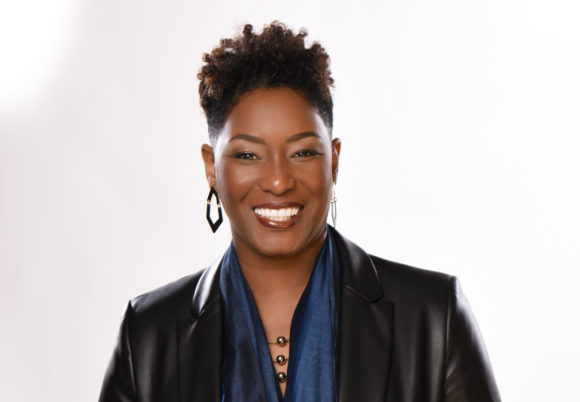Oct 13, 2017
Confront Your Biases and Be More Inclusive With This 3-Step Process
Risha Grant’s book That’s BS shows how to confront bias and be more inclusive.
Are you biased? Have you ever pre-judged someone you never met? If you felt uncomfortable with those questions, you’re not alone. We all have biases. Some are unconscious, some are validated, and all determine how we think and act towards certain groups.
However, if we never acknowledge these biases, we will never understand the power they have over our behavior or how they are affecting the diversity and inclusivity in our workplace.
Being more diverse and inclusive is important for success in business. Research has shown that companies that are more diverse have greater customer satisfaction and made 18 to 69% more in net income than companies that were less inclusive.
If you want help addressing your biases, diversity consultant Risha Grant has a book for you: That’s BS. Her book provides the reader with practical, no-nonsense advice about how to work on personal biases that doesn’t pull any punches.
Drawing on anecdotes from her life and from her years running the only award-winning, full-service diversity communications firm in Oklahoma, Grant explains the only way to increase diversity and inclusivity in our life is to give permission to ourselves to acknowledge and own our personal BS.
BS is short for “bias synapse.” Grant explains that synapses are the channels in our brain through which we act and think. In very real terms, we are our synapses. And some of these synapses function as bias synapses.
In the book, Grant shares a three-step process that grants the reader permission to acknowledge their biases and work on them as preparation for being more inclusive.
1. Identify your BS
The first step is to identify your personal BS. You can do this by asking three questions to assess, attribute, and identify the BS you have. Each question will take you deeper into the issue.
Assess: Who are the people who make me feel uncomfortable and why?
Attribute: Is the reason I am uncomfortable their fault, or is it my issue?
Identify: Are my feelings based on my personal experiences, societal norms, or a deeply rooted, long-held belief that was instilled in me as a child?
2. Own your BS
After you identify your personal BS, you need to own it. When confronted with our own personal BS, Grant says people can react in one of five ways: validation, passivity, shame, acceptance, and denial.
Validation is a bias that is based on our lived experiences. Say that you were cut off by a driver of a certain geographic location, such as a city driver. You might say that all “city drivers” are bad drivers. That bias is based on an actual experience. That does not mean you are excused from working on your bias; it just means you understand where it came from.
Passivity, shame, and denial are three ways people avoid working on biases. Shame makes you drag your feet about doing anything about a bias, passivity is your way of ignoring a bias, and denial is the way of pretending you don’t have a bias so you never confront it.
Acceptance is not a positive word in terms of bias. It means you accept that you are biased. For example: you might accept that you hate the New York Yankees or Dallas Cowboys and are fine with that and don’t want to change.
Whatever way we have handled bias in the past, once we own our BS in the present, we can work on it in the future.
3. Confront your BS
The last step is the hardest step. It is also the step we must continually work on during our life if we want to be inclusive. Grant says that the key to increasing inclusivity in our life is being intentional.
You must intentionally talk to people who are different than you to understand them. You must intentionally get out of your comfort zone to be comfortable with different groups.
Once you have confronted your BS, you can start taking the necessary steps in her book to make your life and workplace more inclusive.
Kyle Crocco is an East Coast native and content creator for Big Speak. His career has taken him from authoring the Heroes, Inc. series, to living and teaching abroad in France and China, to completing his Ph.D. in Education at the University of California-Santa Barbara. He is also the lead singer for Duh Professors, a local Santa Barbara band.
Speaker
Tags

 Risha Grant
Risha Grant